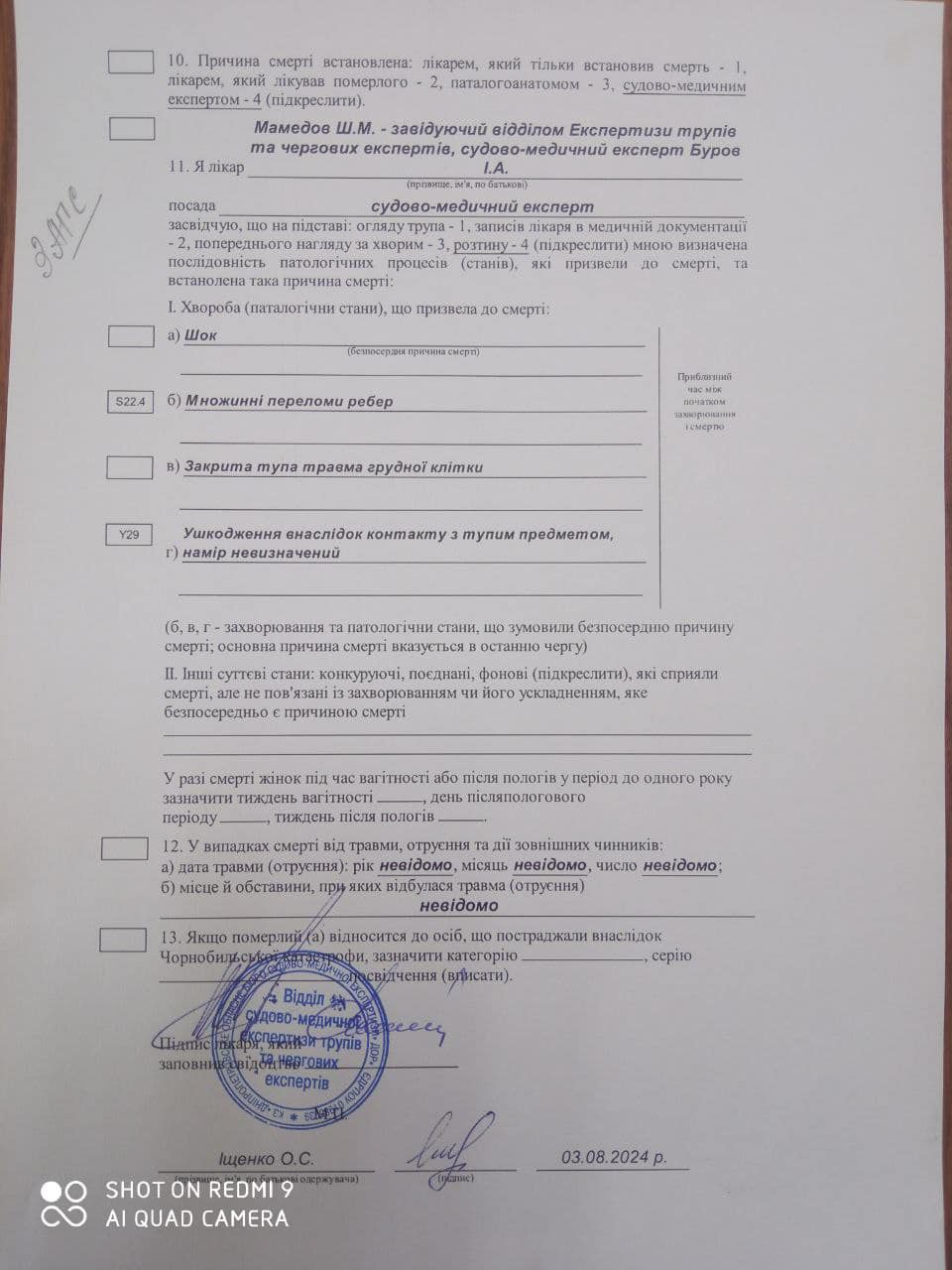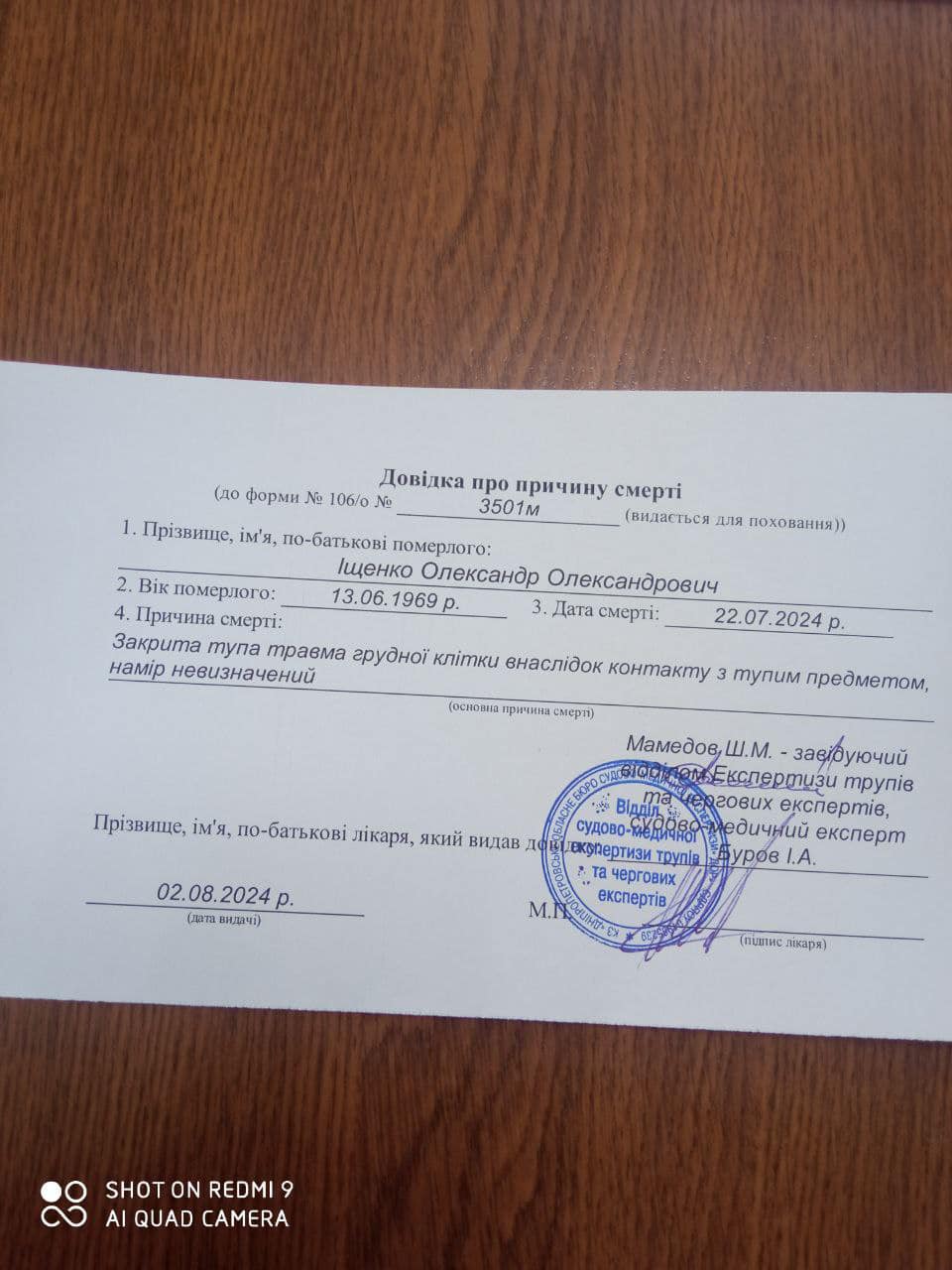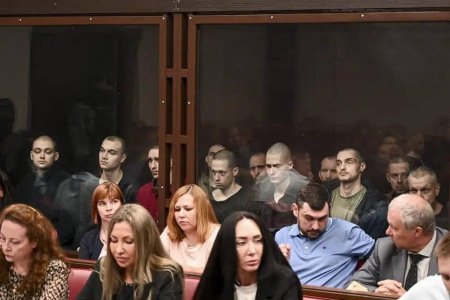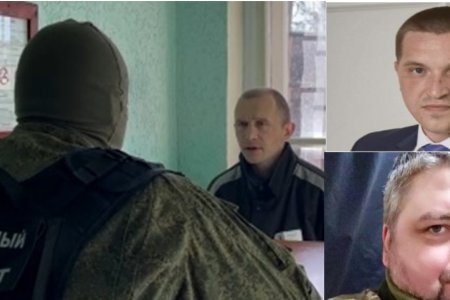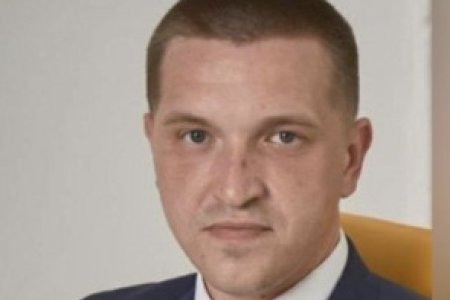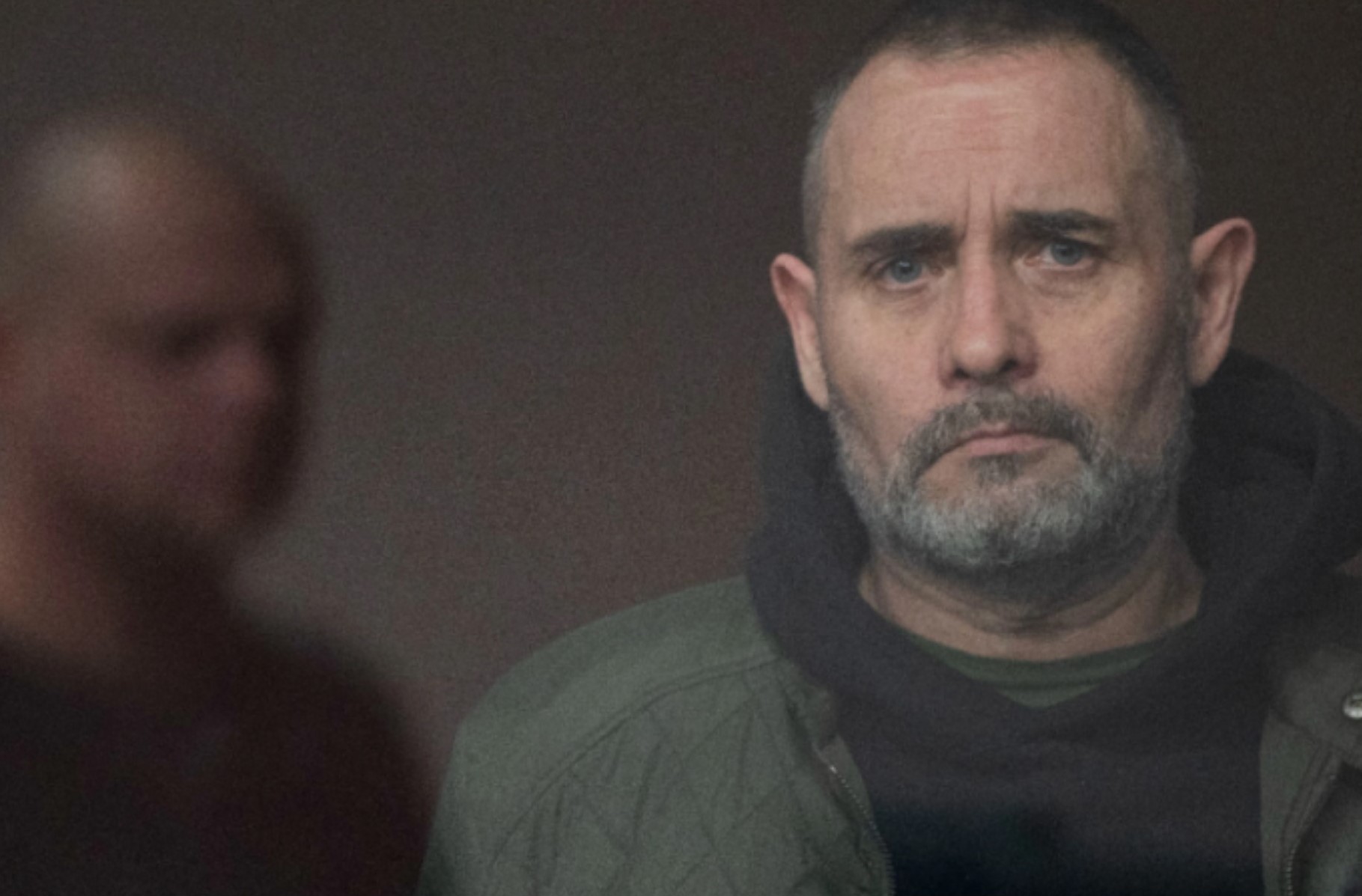
A medical examination has shown that Oleksandr Ishchenko, the 55-year-old Ukrainian prisoner of war whose death was recently reported in Russian captivity, died of injuries inflicted on him, possibly as a result of torture.
The death certificate and results of the examination were, with the permission of Oleksandr’s wife, made public on 7 August by Sviatoslav Palamar, Deputy Commander of the Azov Regiment. The examination showed that Oleksandr Ishchenko died on 22 July from a “closed wound to the chest caused by contact with a blunt item”, as well as multiple rib fractures and shock. Russia was already in flagrant violation of the Geneva Convention relative to the Treatment of Prisoners of War through its imprisonment of Ishchenko and other Ukrainian POWs in the Rostov SIZO [remand prison] and the men’s prosecution. Russia was responsible for the safety of all Ukrainian prisoners of war in its custody. Had there been any grounds for believing that the Ukrainian was somehow killed by other prisoners, Russia would have assuredly said so, and would, in any case, have been responsible for carrying out a proper investigation. There is nothing to suggest that it did anything but inform the family on 31 July that Oleksandr Ishchenko had died nine days earlier, with no explanation as to the cause of the 55-year-old’s death. This is now known from a Ukrainian medical examination after Ishchenko’s body was returned, probably as one of the 150 bodies of fallen Ukrainian defenders on 2 August.
Given the silence and lack of any Russian investigation, it seems much more likely that Oleksandr sustained the fatal injuries as the result of beating by prison personnel or torture. In March 2024, the Office of the High Commissioner for Human Rights reported that it had confirmed at least 32 summary executions of Ukrainian prisoners of war, and provided details of Russia’s “widespread and routine” torture of Ukrainian prisoners of war. During the reporting period (from December 2023 to February 2024) one POW was believed to have died as a result of the torture and failure to provide medical assistance.
According to the head of the OHCHR Monitoring Mission in Ukraine, Russia subjects over 95% of Ukrainian POWs to torture. In an interview on Dutch TV, Danielle Bell called the torture the worst she had seen in her 20 years of monitoring places of confinement.
Oleksandr Ishchenko (b. 13.06.1969) enlisted within two days of Russia’s full-scale invasion of Ukraine as a military driver for the Azov Regiment and, in this capacity, defended Mariupol until his capture on 4 April 2022. He was one of an ever-increasing number of Ukrainian POWs whom Russia has illegally put ‘on trial’ on fabricated charges, and had been recognized as a political prisoner by the authoritative Memorial Support for Political Prisoners Project, together with 21 other Ukrainian POWs (and two others who are being ‘tried’ in absentia). His death was, in fact, reported separately by the Southern District Military Court in Rostov on 31 July where the men’s ‘trial’ is coming to an end.
It was only on 15 June 2023 that Ishchenko’s family learned that he was ‘on trial’ and facing a possible 20-year sentence. According to Memorial, nine women and fifteen men were facing charges, although this figure includes two men included the two men ‘tried’ in absentia and Oleksandr Ishchenko. They are all asserted to have, at different times, served in the Azov Regiment. This parody of a trial is not only in breach of the Geneva Convention. Russia is also flouting fundamental principles of law since one of the charges against the Ukrainian POWs is based on a Russian supreme court ruling passed after the Ukrainians had been seized. Russia has laid some or all of the following charges against the Ukrainian defenders: ‘actions aimed at the violent seizure of power or violent change in the constitutional order of the Russian Federation’ (Articles 278 and 35 § 4 of Russia’s criminal code); ‘organizing the activities of a terrorist organization or participation in it (Article 205.5 § 1 or 2) and (against 11 men) ‘undertaking training for the purpose of carrying out terrorist activities’ (Article 205.3). The charges can carry a sentence of from 20 years to life imprisonment, although they are based solely on a flawed and politically motivated ruling from the Russian Supreme Court on 2 August 2022. This ruling declared the Azov Regiment a ‘terrorist organization’. As well as there being no grounds, nor legality, for Russia to claim that Ukrainian defenders from a Ukrainian Armed Forces regiment were ‘terrorists’, the very use of this as an excuse meant that Russia was making the law retroactive, since all of the prisoners of war had been taken into custody long before the ruling was passed.
